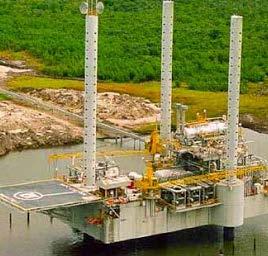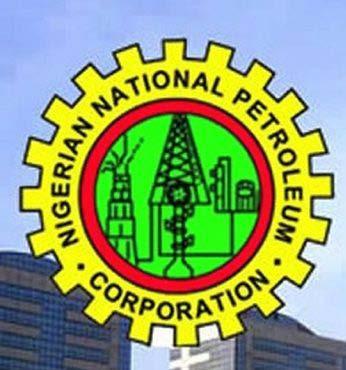
9 minute read
Shell Reports Nigeria to W’Bank Panel over Oil Spill Dispute
Government garnered more revenue than it projected in the 2020 revised budget from oil.
The 2020 revised budget put the Federal Government’s projected revenue from oil at N1.01tn but the actual retained revenue for the year under review was N1.52tn.
Advertisement
This showed that the government retained N507.67bn higher than it projected in the revised budget for 2020, which represented a 50 per cent increase on the target.
Also, while the 2020 revised budget projected a retained revenue of N1.9bn for the Federal Government from minerals and mining, the actual revenue that was generated from the sector was N2.09bn.
However, it was observed that the actuals from non-oil revenue, Company Income Tax and Value Added Tax were lower than their respective projected targets in the revised budget. The retained revenue projections of the Federal Government for non-oil revenue, CIT and VAT in the revised budgets were N1.62tn, N821.67bn and N284.11bn, while their actuals were N1.28tn, N673.22bn and N192.66bn respectively.
Also, the actual revenues from Customs and federation account levies were lower than their targets as captured in the revised budget for 2020.
The actual revenue from customs that was retained by the Federal Government during the review period was N396.37bn, whereas the projection in the 2020 revised budget was N450.7bn.
For federation account levies, the projection was N68.46bn, but the actual retained revenue of the Federal Government was N13.84bn.
Minister of Finance, Budget and National Planning, Zainab Ahmed, recently said revenue generation remained the most critical fiscal issue over the medium term.
She noted that several measures were being instituted to improve government revenue and entrench a regime of prudence with emphasis on achieving value for money.
Ahmed explained that improving the country’s tax administration framework to optimise government revenue was a major thrust of the Federal Government’s Strategic Revenue Growth Initiatives.
Nigeria LNG Limited is one of the world’s top 10 suppliers of liquefied natural gas.
The company is an incorporated joint venture owned by the Nigerian National Petroleum Corporation, 49 per cent; Shell Gas B.V., 25.6 per cent; Total Gaz Electricite Holdings France, 15 per cent; and Eni International N.A. N.V. S.àr.l, 10.4 per cent.
Royal Dutch Shell Plc along with its Nigerian subsidiary, the Shell Petroleum Development Company (SPDC), has launched arbitration proceedings against the federal government over a long-running dispute with a Rivers community. The oil major’s Netherlandsregistered holding company and SPDC filed the case at the World Bank’s International Centre for Settlement of Investment Disputes (ICSID) on February 10.
This is coming as the Joint Venture (JV) between the Nigerian National Petroleum Corporation (NNPC) and Total E & P targets to hit first oil in the $500 million Ikike Oilfield from the last quarter of 2021.
A post on the website of the Washington-based World Bank dispute resolution body, indicated that the hearing of the case marked “Shell Petroleum N.V. and The Shell Petroleum Development Company of Nigeria Limited v. Federal Republic of Nigeria (ICSID Case No. ARB/21/7)” was still pending.
It listed the claimant’s representative as Debevoise & Plimpton, London, UK and New York, NY, U.S.A, while the respondents representatives were named as the AttorneyGeneral of the Federation and Minister of Justice, Abuja, Nigeria, Solicitor-General of the Federation and Permanent Secretary to the Federal Ministry of Justice, Abuja, Nigeria as well as the Federal Ministry of Justice.
The World Bank’s arbitration body is a leading institution devoted to international investment dispute settlement, having administered the majority of all international investment as agreed to by participating states.
It was set up under a multilateral treaty formulated by the executive directors of the World Bank to further its objective of promoting international investment. It was established in 1966 by the Convention on the Settlement of Investment Disputes between States and Nationals of Other States (the ICSID Convention) and has handled over 700 cases.
According to the organisation, Shell brought its claim against Nigeria under the bilateral investment treaty between the governments of The Netherlands and Nigeria.
Bloomberg reported that the decision to drag the country to the arbitration panel followed the AngloDutch energy giant’s unsuccessful efforts last year to reverse a court order instructing the company to pay compensation to a community for polluting its land.
While the case’s victors say they are now owed more than N183 billion ($479 million), Shell contests that valuation and denies being responsible for the decades-old oil spill.
“Given the history of this particular case, we are seeking protection of our legal rights from an international tribunal,” Bloomberg quoted a spokeswoman for Shell’s Nigerian subsidiary as saying in an emailed statement, without providing further details about the oil major’s case.
Shell operates the oil block at the heart of the dispute, which is known as Oil Mining Lease (OML) 11, in a joint venture with the NNPC, Total SE and Eni SpA.
2020 Marginal Bid Round: FG Targets N189.5bn revenue

The Federal Government is expecting to generate at least $500m in revenue (N189.5bn) from the ongoing marginal field bid round, the Department of Petroleum Resources has said.
The Director/Chief Executive Officer, Department of Petroleum Resources (DPR), Mr Sarki Auwalu, disclosed this in an interview on Arise TV’s The Morning Show recently..
He said that the bid round would be concluded before the end of the first quarter of this year, adding that the successful bidders would be allowed for the first time in the nation to pay the acquisition cost of the oilfields in naira.
The Federal Government, through the DPR, had announced on June 1, 2020 the start of the 2020 Marginal Field Bid Round, with 57 fields available for indigenous companies and investors interested in participating in the exploration and production business in Nigeria.
The agency said last month that 161 companies had been shortlisted to advance to the final stage of the bid round.
“When we started the marginal fields bid round, we reviewed the first and learnt from the experience. We had 24 fields awarded in 2003; unfortunately, only 13 out of the 24 seems to be producing,” Auwalu said.
He said there were over 630 applicants, out of which about 500 prequalified.
Asked how much was being expected from the bid round, Auwalu said, “What we did internally is to look at the competent person reports and objectively estimate the average signature bonus on a field. We estimate to have not less than $500m, which is on the conservative side.”
“We are avoiding any third-party interference since government really believes in us and we believe the investors are having confidence in the process,” he said, adding that there would be no discretionary award.
NNPC Renegotiates Terms with IOCs to Keep Investments Flowing

The Group Managing Director of the Nigerian National Petroleum Corporation (NNPC), Mallam Mele Kyari, has said the national oil company is renegotiating commercial contract terms with major International Oil Companies (IOCs) operating in the country.
This is in a move that it hopes will keep investment flowing into a sector crucial for the country’s economy at a time when spending is being slashed.
Nigeria is an oil dependent nation. Oil accounts for over 90 percent of its foreign exchange earnings and over 70 percent of its revenue.
Oil companies meanwhile, including Royal Dutch Shell, ExxonMobil, Total and Eni, are cutting billions in spending after taking hits to their profits, shifting money to renewable fuels and focusing only on the most cost-effective markets.
In an interview with Reuters recently, Kyari said that new commercial terms were being negotiated and would be finalised before a pending oil overhaul bill is passed.
“No company will invest where they cannot get the appropriate margin,” Kyari said in a video interview, declining to say specifically what was being renegotiated.
“We’re very conscious of the fact that people have choices, companies will make choices to leave countries when they have to.”
Nigeria’s parliament has promised to pass the long-awaited oil overhaul bill by May. It will define the sector for decades to come, but companies have criticized the draft for not doing enough to attract development dollars. They have raised issues over taxation, royalties and local community obligations.
Kyari said companies would have the option of the newly negotiated commercial terms or moving to the updated terms outlined under the new law.
By the end of June the NNPC is planning to have found $2 billion of financing to overhaul its Warri and Kaduna refineries, Kyari said. Talks are underway on financing repairs to the Port Harcourt refinery after a pre-finance bid for more than $1 billion was oversubscribed, he said.
The money will be repaid in profits and fuel cargoes from the refineries, rather than in oil cargoes, Kyari said.
While the refineries have not operated at full capacity for years, NNPC had to shut all of them completely last year as they await much-needed maintenance, repair and upgrades, leaving it with a hefty fuel import bill.
11 Plc Proposes Voluntary Delisting from NSE, writes Shareholders

11 PLC, which until October 2016 was known as Mobil Oil Nigeria Plc, has written explanatory statement to its shareholders, proposing voluntary delisting of its more than 360.592 million ordinary shares from the daily official list of the Nigerian Stock Exchange (NSE) by the end of the first quarter, in furtherance of a resolution passed at its last annual general meeting in October.
“The purpose of delisting is to enable the company explore strategic opportunities, alliances and collaborations that can bolster earnings and/or provide synergized benefits with little or no regulatory obligations,” the energy firm said in an explanatory statement issued recently.
Shareholders who do not consent to the exit proposal will be in the frame to sell their stakes at N213.90 per ordinary share, “being the highest price at which 11 Plc shares have traded, six (6) months preceding the notice of the AGM at which the resolution to delist was deliberated, as provided by the rules of the Nigerian Stock Exchange.”
11 Plc will still maintain its public liability company status after delisting, even though its shares will no longer be eligible for trade on the bourse.
For the exit plan to materialise, both the Securities and Exchange Commission and the NSE have to give their approvals, after which dissenting shareholders will be settled and cease to be stockholders in the company.
“11 Plc shareholders will be able to elect to accept the Exit Consideration from February 1, 2021 to March 1, 2021,” the document said.
It added that the delisting would not affect the current employment contracts of staff and the composition of the board of directors.
Socony Vacuum Oil Company, the precursor of 11 Plc, started marketing operations in Nigeria in 1907 through the sale of Sunflower Kerosene.
It transformed to a limited liability company in 1951, the same year it adopted the name Mobil Oil Nigeria Limited. In 1978, it was quoted on the NSE, assuming the identity: Mobil Oil Nigeria Plc.










